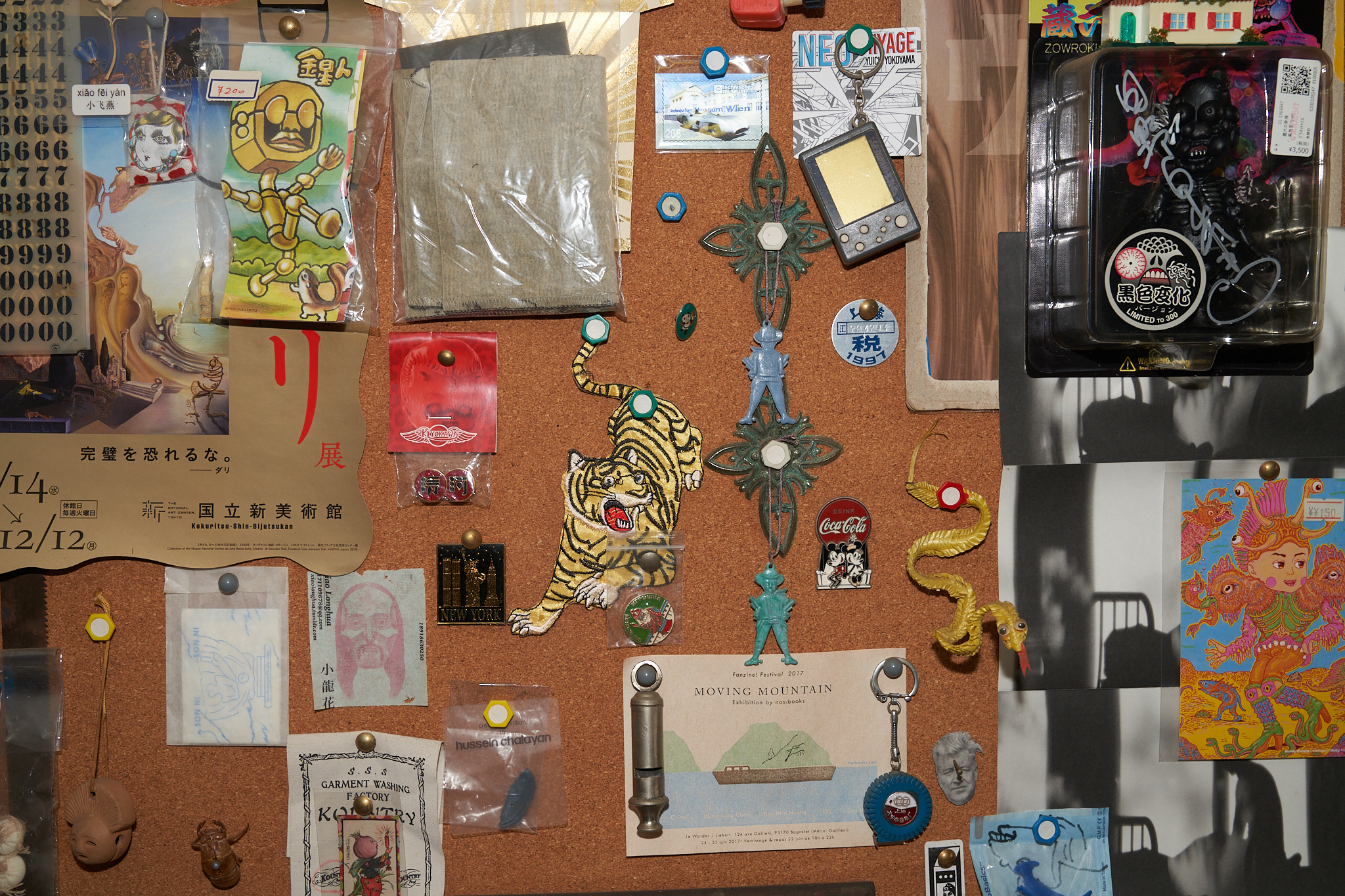LEARNING PERSPECTIVE
| March 12, 2015 | Post In LEAP 31
TEXT / Huang Shan and Huang He
HB STATION Contemporary Art Research Center stands for the preservation and support of experimentation in art. It is a loose yet cohesive institution, but it does not offer absolute guidance or services. Instead, it provides an environment of rapid growth for those who are eager to learn. In other words, HB STATION is a greenhouse, not a garden. A refugee camp, not a club. A hopeful undertaking, not an academy. For its younger members, the protective isolationism of the institution should be discarded in favor of a shared sense of unity to mark a breakthrough in its ongoing process of trial and error.

Although the environment of Guangzhou lacks the proper systems for the art business, it has large numbers of artists and contemporary art enthusiasts. People involved in the art world have a sense of grassroots community organization lacking a fixed focal point. Access to institutions within the professional art industry is greatly limited, and communication with artists has, up to this point, been confined to museum question-and-answer sessions. HB STATION naturally takes shape and emerges under these conditions. Guangzhou is home to a number of art communities such as Libreria Borges, which advocates the study of art and art education and, for a time, created an independent group of art lovers and critics. For local residents, “Huangbian Station was once just a subway station, a place; but now when they hear the words ‘HB STATION,’ they think of the arts.”

In June, 2012, Huang Xiaopeng withdrew from the Guangzhou Academy of Fine Arts Oil Painting Department, and Wang Huangsheng left the Guangdong Museum of Art. That same year there were rumors of the end of the world. Despite their isolation, a few remarkable art institutions persisted; at that time, many wondered about Guangzhou’s artistic capabilities, only to realize that it had only mediocre platforms for artistic exchange. Within the following six months, however, HB STATION emerged to reignite an art scene, recruiting members with Huang Xiaopeng and Xu Tan as experienced moderators.
HB STATION Contemporary Art Research Center began by encroaching on commercial real estate. Due to the specific physical restraints of the two-story space, or perhaps its awkward location behind the guard station of the Contemporary Rose Garden community, the storefront was unable to be rented out for retail. Nikita Yingqian Cai became one of the curators at the Times Museum, bringing a strong focus on young local artists, just as Huang Xiaopeng left the Academy; HB STATION was then born through rigorous negotiation. There are numerous reasons for property developers to support contemporary art. It would not be easy to give an accurate description of the current relationship between Times Museum and HB STATION, but suffice it to say that Times has never pressured or manipulated the group.

HB STATION conducts events once every one or two weekends, varying in subject matter and scale. Because of their mutual interests and close proximity, HB STATION and Times Museum often share artists, curators, and guest speakers. Once, representatives of the Kadist Foundation used the facility for research. During the “Why Close HB STATION” project, senior artist and organizer Chen Tong presented a collection of sounds from inside the space in a unique field recording experiment.
All expenses incurred by these projects are settled within the framework of Times Museum’s management structure, and labor costs often add up. HB STATION’s three employees (currently Li Yao, Zhu Jianlin, and Luo Xiye) have been compelled to take on other jobs in order to better suit their lifestyles, continuing the Guangzhou tradition of the part-time artist. Members hope that, by contemplating the conceptual relationships between young artists and their work, the anticipated missing link in Guangzhou’s art scene—individual contemporary practices—will be gradually refined.

Although director Huang Xiaopeng’s guiding principles of art education involve democratic practice, he also holds that, “If we take HB STATION as an art project, then its problems appear normal.” After all, the artists aren’t as concerned with how an organization works as they are with art itself. The internal workings of HB STATION’s administration are tentative, and internal disputes sometimes occur; rumors of its impending closure sometimes circulate. Its ambiguous identity enables it to disassociate itself from the mainstream and voice its independence. The project studio structure mirrors its members’ creative distinctions, always able to project a plethora of diverse voices. For this reason, examining individual events or projects cannot provide a complete picture of HB STATION.
Both Xu Tan and Huang Xiaopeng have voiced their concerns: “Guangzhou Academy of Fine Arts graduates who continue to make original work are scarce because of a lack of local support in the professional environment. Young artists either have to commit to immersing themselves in a lifetime of independent creation or move to Beijing or Shanghai.” Xu adds, “If it keeps going on like this, within the next few years, there might not be any contemporary art left in Guangzhou.”

Anyone can recognize the conditions necessary for an organization to develop and mature its own scene. Art ultimately boils down to the individual, and it must be noted that HB STATION’s predilection towards the public may not be to everyone’s liking. Art involving social issues, such as global warming, urban-rural disparity, consumer culture, and other issues with potential for analysis or commentary better lends itself to discussion and review; work focusing on narrative, the inner self, and pure style are easily viewed with suspicion. At the same time, conferences require participants to speak at length, which makes some uncomfortable. Many visitors leave halfway through these events because they are unable to deal with this discoursive turn.
Others call HB STATION a small circle. As Huang Xiaopeng says, “What young artists gain or reject from HB STATION is entirely up to them.” It is better to exist, after all, than to disappear.
(Translated by Paul Wade)

